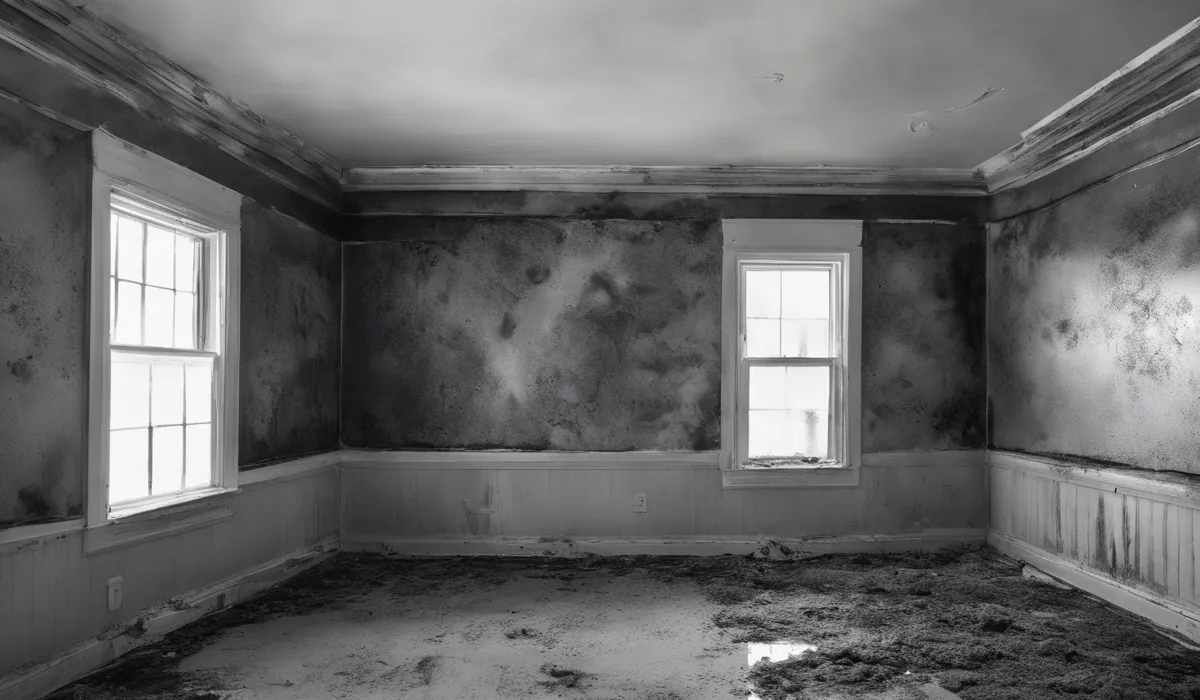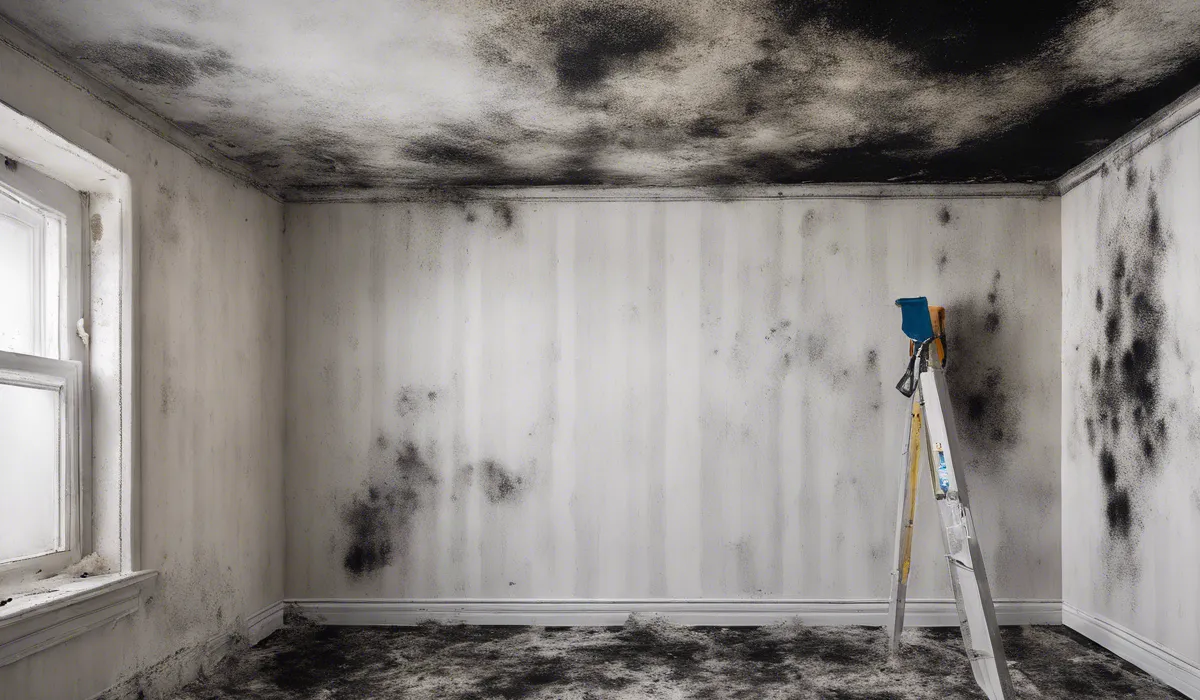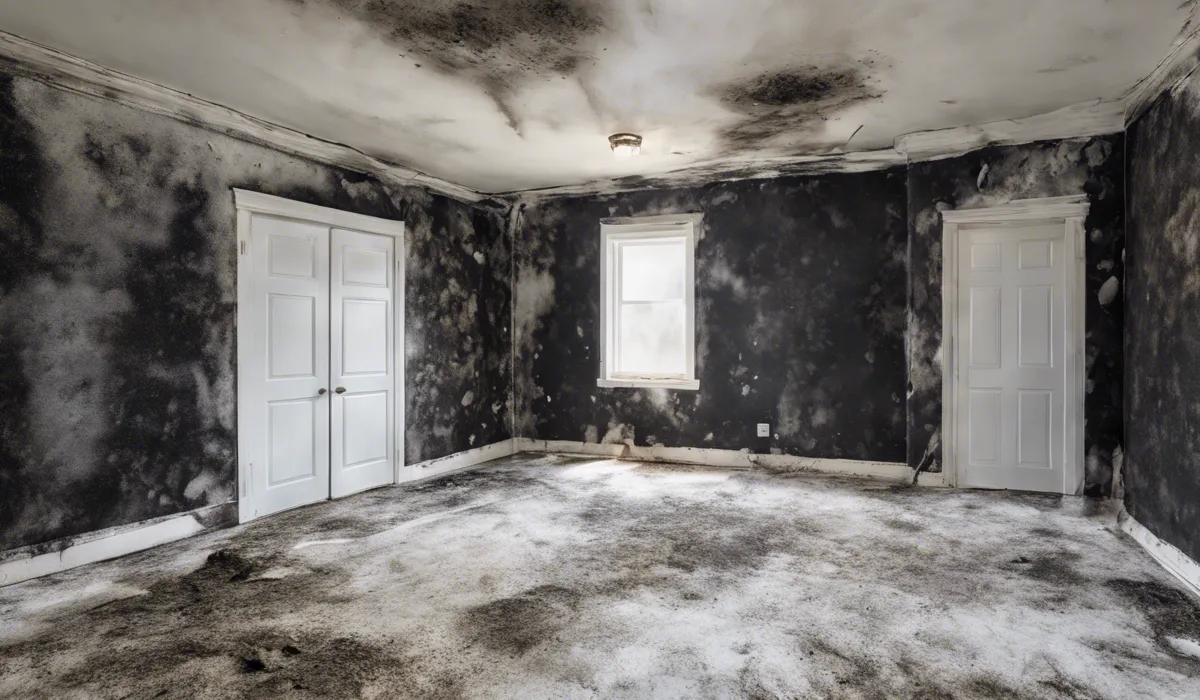It is not safe to clean black mold yourself if the area is large or if you have health issues. Small patches can be treated with proper safety gear, but for extensive mold, professional remediation is recommended to avoid health risks.
Understanding Black Mold and Its Risks

Definition of Black Mold (Stachybotrys chartarum)
Black mold, known scientifically as Stachybotrys chartarum, is a type of fungus that appears as dark green or black patches.
It grows on materials with a high cellulose content, such as wood, fiberboard, and gypsum board, that have been exposed to moisture.
This mold is often associated with damp, musty locations and can grow in homes after water damage.
Environments Where Black Mold Thrives
Black mold needs moisture, warmth, and food to grow. It often appears in places with water leaks, high humidity, or flooding.
Common spots include bathrooms, basements, and kitchens. The key to controlling mold growth is managing moisture levels in your home.
Health Implications of Black Mold Exposure
Exposure to black mold can lead to health issues. Symptoms may include coughing, wheezing, throat irritation, and nasal stuffiness.
Some individuals may experience more severe reactions, especially if they have underlying health conditions.
Risks for Vulnerable Groups
Children, the elderly, and those with respiratory conditions such as asthma are more susceptible to the effects of black mold.
In these groups, exposure can lead to more pronounced and potentially serious health issues.
Possible Symptoms of Black Mold Exposure
Symptoms can range from mild allergic reactions to more severe health problems.
It’s important to be aware of the symptoms, which can include eye irritation, skin rash, and in some cases, fatigue or headaches.
If symptoms appear, it’s crucial to address mold issues promptly.
Safety Measures for DIY Black Mold Removal

When Is It Safe to Clean Black Mold Yourself?
It’s generally safe to clean black mold yourself if the affected area is less than 10 square feet.
For larger infestations, or if the mold is caused by sewage or contaminated water, it’s best to seek professional help.
Protective Gear and Equipment Necessary for Safe Removal
To safely clean mold, you need the right gear. This includes gloves, goggles, and an N-95 respirator.
Also, use plastic sheeting to seal off the work area to prevent mold spores from spreading through your home.
Step-by-Step Guide on Safely Cleaning Small Areas of Black Mold
Preparation of the Area
Before you start cleaning, remove any items from the affected area. Then, use plastic sheeting to create a containment area.
This helps prevent mold spores from spreading during cleaning.
The Cleaning Agents Suitable for Mold Removal
You can use a mixture of water and detergent to clean mold from hard surfaces. For more stubborn mold, a solution of bleach and water may be necessary, but make sure to use it with caution and in a well-ventilated area.
Techniques for Preventing Mold Spores from Spreading
When cleaning mold, always work gently to minimize the disruption of mold spores. After cleaning, dispose of any rags or materials in a sealed bag to avoid spreading spores.
Cleaning Versus Professional Remediation
For small areas, DIY cleaning can be effective. However, professional remediation ensures a complete removal, especially for larger infestations or in cases of hidden mold.
Preventative Measures to Avoid Future Mold Growth
Preventing mold begins with controlling moisture. Repair leaks, improve ventilation, and keep humidity levels low. Regular inspections can also help catch potential mold growth early on.
When to Call Professionals for Mold Removal?

Scenarios Where Professional Remediation Is Necessary
Professional help is required when mold covers a large area, when it involves HVAC systems, or if it’s a result of contaminated water.
In these cases, professionals have the tools and training to safely remove the mold.
Benefits of Professional Mold Removal Services
Professionals offer thorough remediation, which includes identifying the source of moisture, cleaning, and preventing future growth.
They ensure that mold is removed safely without risking your health.
How Professionals Handle Large-Scale Mold Infestations?
For large-scale infestations, professionals use advanced equipment to contain the area and filter the air.
They also discard any materials that can’t be cleaned and help with the restoration process.
The Process of Professional Mold Remediation
Professional remediation includes assessment, containment, filtration, cleaning, and restoration. Experts ensure the mold is completely removed and that your home is safe to live in.
How to Choose a Reliable Mold Remediation Service?
Look for licensed and insured remediation services with good reviews and a track record of success. It’s also important to choose a service that guarantees their work.
Legal and Insurance Considerations With Black Mold Removal
When dealing with black mold, it’s important to understand your insurance policy and any local regulations.
Some policies may cover mold removal, while others may not. Always document the infestation and remediation process for legal purposes.
FAQs About Cleaning Black Mold Yourself
Is it safe to clean black mold on your own?
It can be safe to clean small patches of black mold yourself with proper safety gear, such as gloves, goggles, and a mask, but it is not recommended for large areas or if you have health issues.
What should I wear when cleaning black mold?
When cleaning black mold, you should wear protective gear including gloves, a N-95 respirator mask, and goggles to prevent mold spores from contacting your skin or being inhaled.
How do I know if a mold area is too large to clean myself?
If the mold covers an area larger than about 10 square feet, it is recommended to seek professional mold remediation services.
What are the risks of cleaning black mold by myself?
Cleaning black mold by yourself can pose health risks, especially if you have respiratory issues, allergies, or a weak immune system, as mold spores can cause reactions and illness.
When should I call a professional to deal with black mold?
You should call a professional if the mold area is large, if you have health concerns, or if you are unsure about how to properly clean it without causing harm to yourself or others.
Final Thoughts
Handling black mold independently is unsafe if the infestation is extensive or if personal health conditions are a concern.
For small areas, proper safety equipment allows for self-remediation. However, professional services are essential for larger mold problems to mitigate potential health risks effectively.
